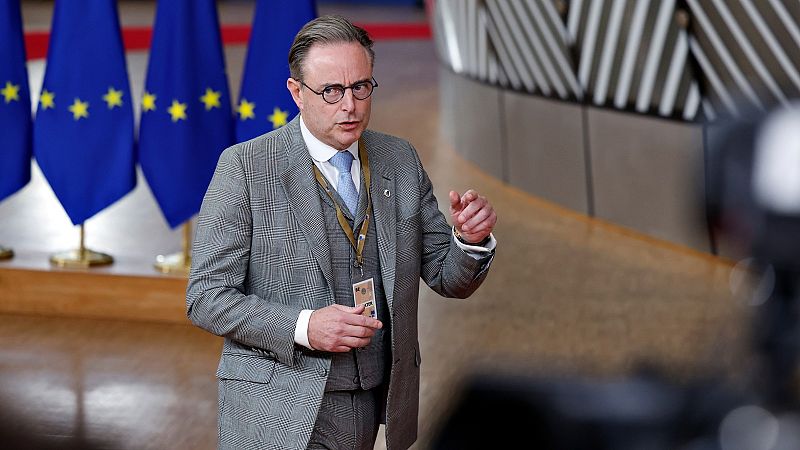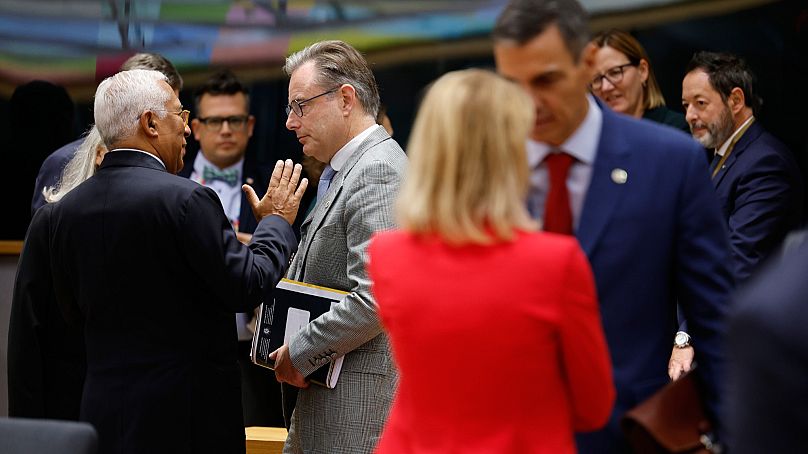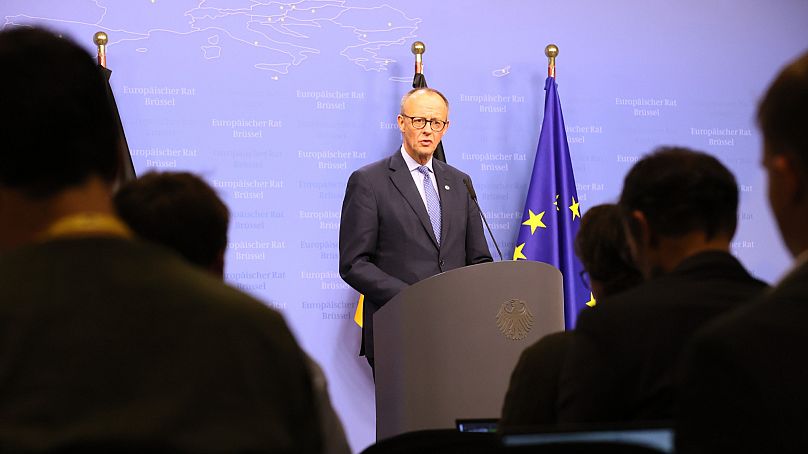Belgian resistance holds up €140 billion loan for Ukraine at EU summit

Belgium held its ground during a summit of European Union leaders, preventing a breakthrough on an audacious plan to issue a €140 billion loan to Ukraine using the immobilised assets of the Russian Central Bank.
The bulk of the assets is held at Euroclear, a central securities depository in Brussels.
Belgian Prime Minister Bart De Wever raised the demands in exchange for his blessing, calling for the "full mutualisation" of financial risks and the provision of airtight guarantees from all member states. He also urged that Russian sovereign assets held in other European jurisdictions be added to the common pot.
"Who is going to give those guarantees? Is it the member states?" he said after the summit concluded. "Because the European Commission cannot oblige the member states to sign a guarantee."
The main concern for the Belgian prime minister is Russian retaliation if Moscow demands its assets back and sanctions are undone.
"If you take the money from my country, if it goes wrong, I am not able, and certainly not willing, in a week's time to pay €140 billion," he said.
"So I would imagine that everybody who is really for this decision, really wants to make this happen, is also ready, willing and able to make a guarantee so that I can sleep quietly at night knowing that if it goes wrong or sour that the solidarity will make (sure) that the money is actually there," he added.
"This question was not answered with a tsunami of enthusiasm around the table."
After intense discussions and negotiations that stretched over the entire day, leaders failed to placate De Wever's concerns and obtain his sought-after blessing. Hungary, meanwhile, outright rejected the initiative, though this was expected.
The resistance played against the majority in the room, who see the Russian assets as the only avenue to avoid paying for the assistance out of pocket.
Ultimately, heads of state and government settled on considerably weaker language instructing the Commission to present "as soon as possible" a list of "options" to plug Kyiv's financial and military needs for 2026 and 2027. An earlier version of the conclusions spoke of drafting "concrete proposals".
Ursula von der Leyen embraced the vague wording as a mandate.
"This is certainly a topic that is not trivial; it's very complex," the Commission president said in reply to a question from Euronews.
"There are points to be clarified and have a deep dive," she added. "So in other words, we agreed on the what, that is, the Reparations Loan, and we have to work on the how, how we make it possible (and) what's the best option to move forward."
Can it be done?
Under the tentative scheme, Euroclear would transfer the cash balances generated by the Russian assets to the Commission. The Commission would then use the money to issue a €140 billion loan to Ukraine, disbursed gradually and subject to conditions.
Ukraine would be asked to repay the loan only after Russia agrees to compensate for the damages caused. Hence, the name "Reparations Loan". Afterwards, the Commission would repay Euroclear, and Euroclear would repay Russia, completing the circle.
The plan is still in early stages and needs to be turned into a fully-fledged proposal.
António Costa, the president of the European Council, said nobody had "vetoed anything" on Thursday and instead "all the technical issues" were possible to solve.
According to Costa and von der Leyen, European Central Bank President Christine Lagarde, who took part in the summit, said the plan was feasible. Lagarde had previously criticised any plan that would resemble a confiscation of sovereing assets.
Costa expressed his hope that a "final decision" would be taken at the next summit in December, a view shared by France's Emmanuel Macron and Germany's Friedrich Merz.
"I would use the same argument (as Belgium) if the assets were in Germany. Today we took a step forward that should not be taken for granted," Merz said.
"We will do what we can to move forward. I am sure all member states will sign up, but we need to further discuss liability."
In his remarks, De Wever painted a more nuanced picture of the exchange.
"My impression is that many heads of government are a bit torn between their willingness to support Ukraine (...) and [the fact] they have to acknowledge that these questions are real, that the risks are real and the guarantees need to be there," he said.
De Wever insisted that a condition for the loan would be to bring other G7 allies on board. The UK and Canada have already expressed their interest in joining. Japan, which also holds Russian sovereign assets, has kept a low profile.
"It would be good not to do it alone," De Wever said.
Thursday's lukewarm outcome increases the pressure on Europeans to construct a reliable and predictable source of funding for Kyiv.
Earlier on Thursday, Ukrainian President Volodymyr Zelenskyy made a plea to have the loan approved by next year. The country is running low on funds after the US administration of Donald Trump cut off the assistance, further deepening the hole.
"Money we need it in 2026 and better to have it at (the) very beginning of the year," he said. "I don't know if it's possible; not everything depends on us."
"We understand who can block, and we can work with these people," he said, seemingly referring to Belgium.
Today



